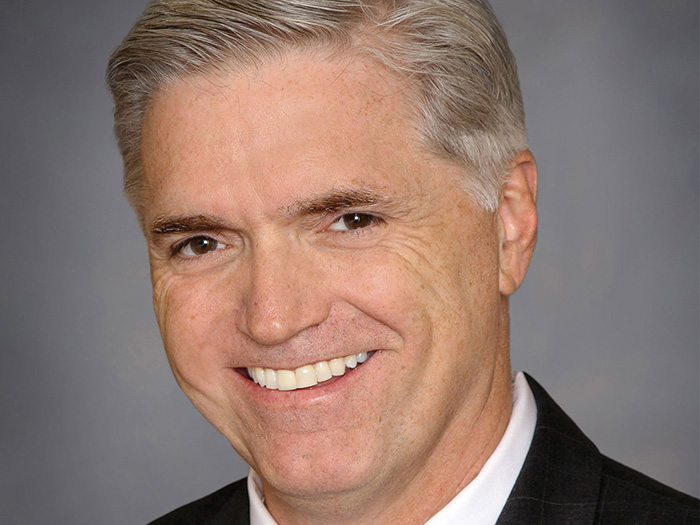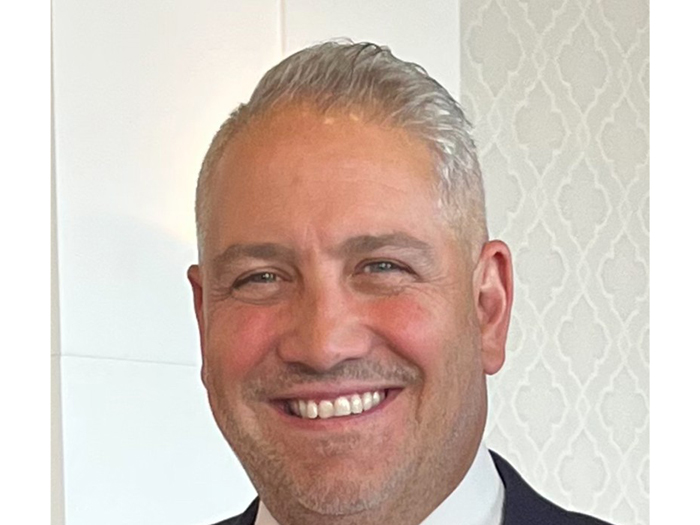How I Ditched the Imposter Syndrome to Become an Insurance CEO
Last November marked a milestone in my career: 30 years working in the insurance industry. Hitting that milestone inspires me to reflect on the progress and challenges of our industry, as well as my own career, as we consider what the future of work might hold.
Based on my personal experience spending three decades in this industry, I believe the future of work in insurance must be rooted in listening and trust between employee and employer every bit as much as it should be among the agent, policyholder and insurer.
My journey has been nontraditional, to say the least. More than 30 years ago, I was a young single mother who needed a job after college to support my daughter while paying for my student loans and bills. I took the first position available, a receptionist job with Texas Mutual Insurance Company. Just last year, I assumed the role of president and CEO, along with celebrating my 30th anniversary with the company.
I found a home in insurance because our industry is stable, which was important for me as a young mother, yet it is always evolving. As a natural problem-solver, I’ve found career satisfaction as the industry consistently provides new challenges to address.
Reflecting on the talent landscape over these past three decades, I see evidence of positive change and progress for attracting new talent to the industry. For example, 30 years ago, only a handful of insurance and risk management programs existed at universities nationwide. Today, a number of universities have introduced insurance and risk management programs, not only raising awareness among students about insurance careers but also providing a pathway to a career in insurance. And while many in our industry 30 years ago may have kept our heads down, crunching numbers and writing claims checks, today’s industry leadership has made it a priority to spread the word about just how rewarding a career in insurance can be and to remove barriers to welcome new types of talent to our industry.
The future of work carries much potential, as we are a more welcoming industry than ever before. But that bright future relies heavily on how we interact with our team members. We are an industry rooted in compassion and exist to help people in their times of need. We must also share that empathetic side with our employees from all backgrounds and life experiences. We need to listen, trust them and earn their trust in order to build a culture of belonging and best position our industry for the future, and we need to allow them to bring their full selves — along with their perspectives and experience — to the job.
A Perception Problem
We all know about the talent dilemma we face. Our industry is in the midst of a swath of retirements, and we need to continue to find new sources of talent to fill the gap. At the same time, we need to cultivate a positive atmosphere at “the office,” whether that is the physical office or at home, so individuals feel welcome and want to be a part of our industry for years to come.
We are making good progress on broadening our approach to bringing in a wide variety of talent to our industry. In recent years, our industry began focusing on recruiting nontraditional talent to expand our recruiting pool. For example, here at Texas Mutual, we implemented an apprenticeship program in partnership with the Greater Houston Apprenticeship Network. This program targets individuals who may not be able to easily access higher education in order to start — or make a change in — their career. We offer them the opportunity to work for us part-time, learning the claim-handling role while attending college part-time. After two years, they have an associate degree, a wealth of industry experience and the credentials necessary for a full-time claim adjusting role.
A Recipe for Success
I started in insurance without industry experience. I also had to balance work with raising my daughter as a single mom, which made me feel as if I was an outsider in the workplace. The primary thing that helped me find a sense of belonging and move past my imposter syndrome as I moved up the ladder was coaching and mentorship.
I had a hard time developing confidence and believing in my worth. At Texas Mutual, I had access to mentors and, later, an executive coach who helped change my outlook by providing several strategies for confidence-building. With the coach’s help, I was able to recognize the value in what I do — and how I do it — that is specific to my unique experience and approach. This confidence changed my outlook and pushed aside my imposter syndrome, and is one of the main reasons why I am CEO of Texas Mutual today.
We have seen employee expectations shift significantly since the pandemic, and it is important that we work to meet our employees where they want to be met and provide them with the resources they need to succeed in their careers. We want them to have a sense of belonging. These three best practices can help us get there:
- Provide coaching and mentorship: For any coaching to be effective, self-awareness is key. Companies can utilize coaches and self-evaluation tools that, coupled with feedback gathered from peers, enables employees to feel comfortable with self-analysis. Similarly, mentors and coaches can provide consistent and strong feedback. We want employees to look in the mirror and develop strategies for improving self-confidence, inspired by our support.
- Listen: We cannot afford to make assumptions about how team members are feeling and thinking. We need to be asking questions — without prying into personal matters — that can help us keep up with changing expectations and foster a sense of belonging. For example, we need to talk to them to learn what team members like about our companies and what can we do better. Since the pandemic, we have heard more employees requesting flexibility. I think back to when I started as a single mother. Employers offered very limited flexibility. If I had to work and my daughter had a doctor’s appointment, it was a challenge. That is all changing. With that increased flexibility comes increased engagement, and we are less likely to lose valued employees because of the circumstances of life.
- Empower employees: We want to empower our people to get the work done in the environment that works best for them. This promotes a healthier workplace with better employee engagement, where our team members feel both trusted and appreciated. At Texas Mutual, we have recognized that we can be more successful when we lead with empowerment and provide each employee with the autonomy to get the job done the best way they know how. Rather than telling staff members exactly what to do, we share the expected outcomes and ask them to find the best way to achieve those outcomes. This creates a sense of ownership of the work for employees and increases their career satisfaction.
Moving Forward
As a five-foot-three-inch-tall woman with curly hair, I do not bear the physical appearance of a traditional CEO. I do not necessarily have what people tend to describe as traditional “executive presence.” That’s why it is important that we work to break down those dated perceptions. Women and other new faces in leadership can get this process started by taking action. That’s why I speak and share my career story at as many events or opportunities as I can — to show that you can be true to who you are and be successful, and to help create a new perception of what an executive leader looks like. That’s also why I serve as a mentor to new talent and provide as many people as I can with the tools and resources they need to break through barriers and thrive in their careers.
The Insurance Industry Charitable Foundation (IICF), coincidentally also marking 30 years, has led the way on this front. In fact, I attribute much of what I have learned about building a healthy work culture to their events and the incredible role models and peers I met along the way. These events, like the upcoming IICF Regional Forums, provide a place for members of our industry to convene and focus on networking and professional development, and everyone is welcome to attend.
Looking back on 30 years, we should be proud of the progress we have made as an industry. From my early days as a twentysomething receptionist to my time now in the C-suite, I have witnessed an industry dedicated to helping others. Let’s create a future of work that imparts that philosophy on our employees as well as our policyholders. A focus on listening and trust will fuel a greater sense of belonging to help us create a more successful and sustainable insurance industry. &










